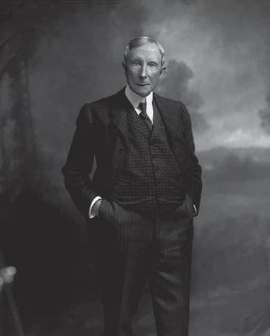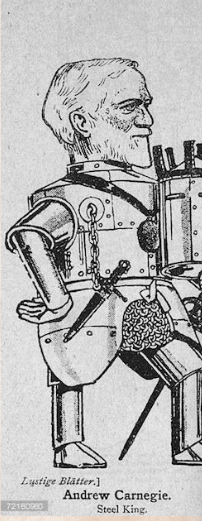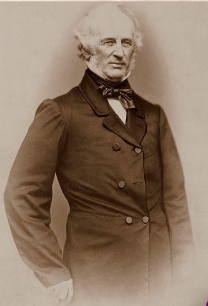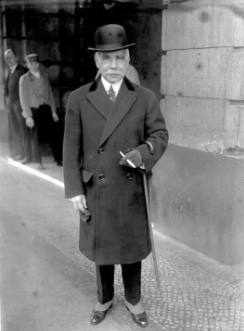Industrial Revolution SDA 03
1/30
Earn XP
Description and Tags
The Topics are as follows: -Everything to do with Big Companies and how they treat workers -Know the Railroads and Land -Steel and the Bessmer Process. Along with Other inventions at the time -Factories and their Working Conditions. -The shift from Agriculture to Industry
Name | Mastery | Learn | Test | Matching | Spaced |
|---|
No study sessions yet.
31 Terms
Robber Barons
A nickname given to elite captains of industry because people believed they made too much money.
These leaders of big business were able to control too much of the economy and had unregulated power.

John D. Rockefeller
Started Standard Oil, controlled over 90% of America's oil refineries by 1890 using horizontal integration.
-He became the world's first billionaire

Andrew Carnegie
A businessman who made a fortune in the steel industry and gave much of his money away to build libraries, schools, and charities

Cornelius Vanderbilt
A rich businessman who made his fortune in shipping and railroads.
He began as a steamboat captain, built a shipping empire, and later bought up railroads, eventually building Grand Central Terminal in New York City.

J.P. Morgan
Founded J.P. Morgan and Chase; he owned controlling shares in 1/6th of all of the railroads in the United States by the time of his death, using holding companies.
Monopoly
When one company controls the goods or services for an entire area.
Monopolies decrease competition, which can lead to higher prices and poorer working conditions for laborers.
Social Darwinism
The belief that you become rich and powerful because you are stronger/better than everyone else.
The poor are believed to be weak and stupid.
Vertical Integration
Where a business buys all necessary companies in the chain of production, helping to decrease the cost of manufacturing.
Deflation
When there is not enough money, and the price of goods begins to lower.
Horizontal Integration
Where a company buys all of its competitors, controlling the market for a good.
Bimetallism
Where both gold and silver will be used to back currency, intended to increase the amount of money available.
Trusts
When one person or a company is given control of several other companies and can manage them as if they are their own.
Sherman Antitrust Act (1890)
A law enacted by Congress intended to prevent the creation of monopolies by making it illegal to establish trusts that interfered with free trade.
Railroad Monopolies and Farmers
Most railroads were controlled by a few companies, charging large amounts of money to move goods across the country.
Farmers were often unable to pay the cost of shipping their goods.
Interstate Commerce Commission (1887)
An act passed that allowed the government to regulate railroad prices.
Bessemer Process
An inexpensive way to quickly make cheap steel from lower-grade iron.
Steam Engine
Runs on coal and boils water to produce mechanical motion. This allowed factories to produce more goods than ever and be built anywhere. Locomotives used the steam engine to move vast amounts of goods quickly
Inflation
When there is too much money in circulation, and it causes the price of goods to go higher
Telephone
Designed by Alexander Graham Bell, allowing for nearly instant communication across long distances
Electricity
Became standardized throughout cities. Thomas Edison's light bulb made light cheap and easy, enabling thousands of homes to have light.
Steele Bottom Plow
An agricultural invention that allowed farms to quickly cultivate and break up the soil in new land and continue to work existing fields.
Mechanical Reaper
An agricultural invention that allowed farmers to quickly cut down wheat and hay.
Threshing Machine
An agricultural invention that shelled out the kernels from wheat, allowing harvests to move much quicker.
Laissez faire economics effect on workers
As America embraced this hands-off government approach, factory conditions continued to worsen
Immigration and Industry
The promise of a better life drew over 25 million immigrants to the United States between 1865 and 1920.
The increase in factories created a demand for cheap labor, and immigrants were the North's answer to this demand
Tenements
Large apartment buildings the lower classes were forced to crowd into, often small studio rooms holding large families. These tenements often lacked running water.
Capitalism
The idea that goods are best distributed by the demands of the market.
Gold Standard
Money is worth a set amount of gold. Cash money can be exchanged for gold.
Boycott
Where a union or workers advocate for people not to buy products or use services until a company gives in to their demands.
Collective Bargaining
When a large group of employees works together to demand better wages, hours, and working conditions.
Urbanization
The rapid movement of people moving to cities. People moved to cities quickly seeking work and jobs.